31 August 2021
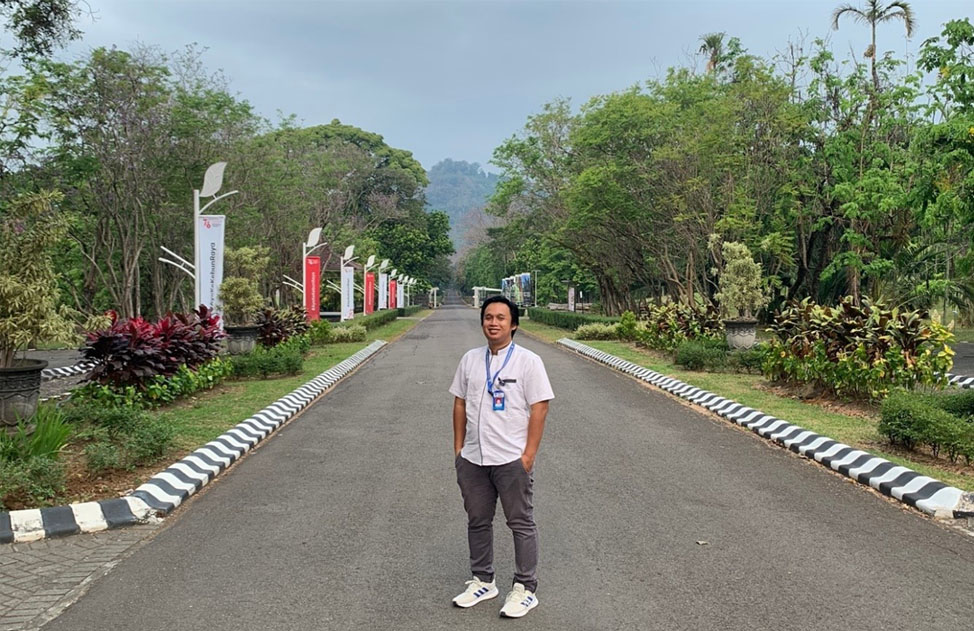
Heri Apriyanto
IT Project Manager & Software Developer at Purwodadi Botanical Gardens
Master of Information Technology (Enterprise Management)
Growing up in a small village in Eastern Lampung in Indonesia was an abundant, green wonderland for children. On the edge of the Way Kambas National Park conservation area, a young Heri Apriyanto and his friends played in the forests and rice fields within ear shot from the wildlife of the park – Sumatran elephants, rhinos and tigers.
As a boy scout he would often camp in the lush forests and developed a special affinity with nature. These trips were also lessons in caring about conservation and how to treat our environment respectfully. It was here where he fell in love with nature and these experiences shaped him into the independent person he is today.
With a childhood so intertwined with nature, these early memories would become an important cornerstone to Heri’s professional career.
At school, a friend introduced him to the personal computer and told him, “With IT you can do anything that you want. You can explore the world and help more people.” He became enamoured with computer software and the endless possibilities it posed, and ultimately made a decision to combine two great passions.
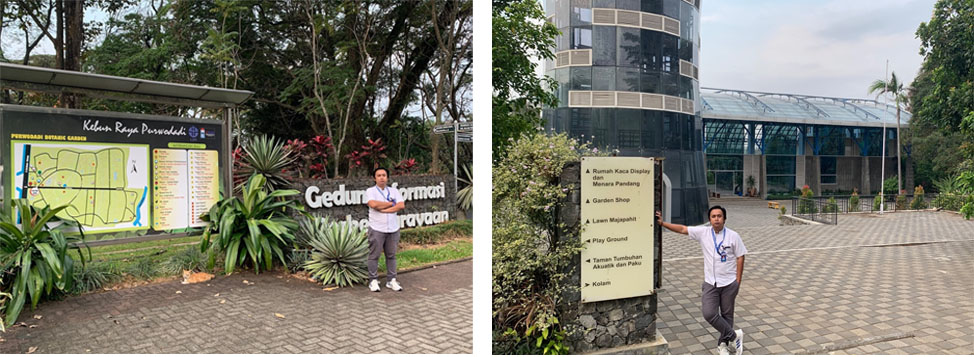
Conservation remains an essential component in his work now at Indonesia’s Purwodadi Botanic Gardens. Since joining the organisation in 2010, Heri has delved more into horticulture and plant care with the opportunity to collaborate with researchers at the Indonesian Institute of Sciences and their united passion for plants and conservation.
In his role as IT Project Manager and Software Developer, Heri builds the infrastructure and provides support to manage and analyse the plants collections in botanic gardens, implementing his knack and expertise in IT to support development in conservation and plant collection management.
The decision to study at the University of South Australia was partly based on a seed of an idea Heri had been developing in an effort to track and computerise an all-encompassing and accessible system to keep track of plants, how to care for them, and prevent extinction. He refined the plan by enrolling in a Master of Information Technology at UniSA through the Australia Awards Scholarship.
The Australia Awards Scholarships are long-term development awards supported by the Australian Government and offer emerging leaders in developing countries the opportunity to undertake full-time study in Australia in priority fields to build networks to drive change and contribute to development.
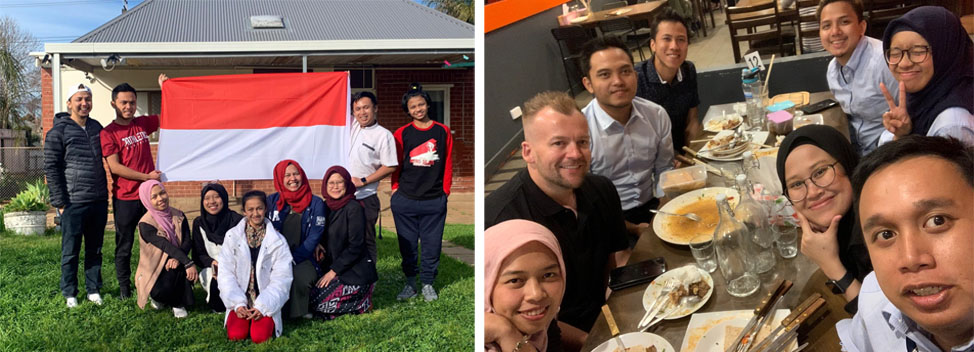
“In my scholarship proposal, I wrote about a concept for an information system that can be used to manage and record plants collections in Indonesian botanical gardens to develop proper conservation and care,” Heri says.
“With smartphones or tablets, teams who tend to the plants can easily create daily reports of conditions, blossom times, any signs of diseases or pests harming the plants, and the need for water and fertilisation.”
“These daily reports are invaluable information as they create patterns that can be analysed to develop informed decisions. Evidence-based support systems are vital for a flourishing botanical garden with issues occurring like the best time to water and prune plants, the best soil conditions for particular plants, which doesn’t exist currently in an automated form.”
Makoyana (Manajemen Koleksi Kebun Raya Indonesia) or in English the Management of Plants Collections for Indonesian Botanical Garden), is even more necessary when considering Indonesia’s environment. The country is an archipelago home to 276 million people containing more than 12 per cent of the world’s flora – however, much of that population is also currently considered endangered species.
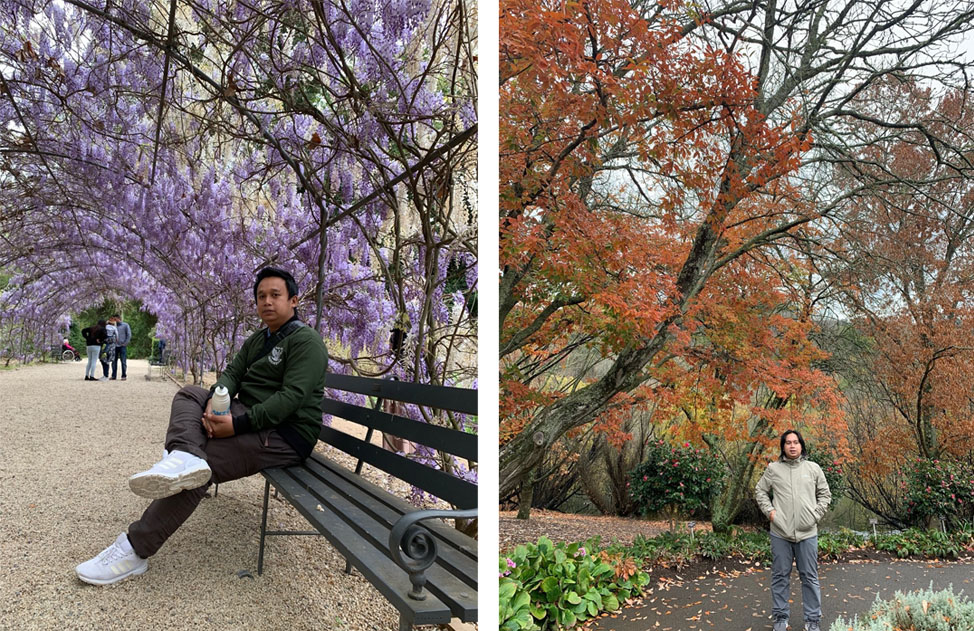
Appropriate treatment is essential to conserve these valuable collections of plants that litter Indonesia’s beautiful network of Botanic Gardens. The country also has a significant amount of flora in ex-situ (off-site) conservation conditions and the Indonesian Institute of Sciences is often the last hope for these plant species that don’t exist anywhere else in the world.
“Catching the disease or identifying certain conditions beginning to emerge among plant populations early is so important to then implement an effective healing process or prevention treatment as quickly as possible to avoid such issues in the future,” Heri says.
“Knowing exact details of blossom times, we can predict when to prepare and collect seeds for the seeding process, either in ex-situ conversation sites or herbariums to also secure their future and sustainability.”
As of June 2021, Heri and his team have constructed the easy-to-use front-end interface and conducted a soft launched of the Makoyana system. He’s also recently implemented a popular education program to encourage students to learn more about the plant collections in Purwodadi Botanical Garden based on the popular Pokémon Go mobile app game.
Heri has play a significant role in improving the accountability and transparency at the organisation too, supporting their corruption prevention campaign, by developing a financial system and one-gate public services system for the Botanic Gardens. All while spearheading the major national plant management project.
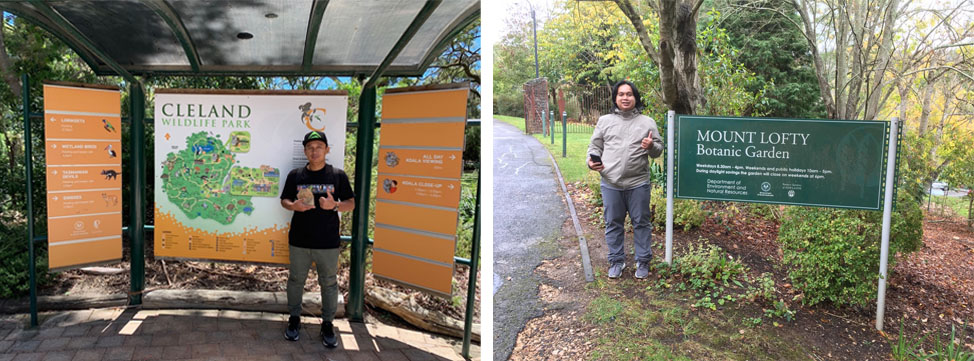
“As a public servant in this conservation area, I really love my role in the Botanic Gardens.”
“All these IT software systems we have developed have succeeded in serving the great public services our institution provides. The satisfaction and opportunities like this are why I’ve greatly enjoyed this role for almost 10 years.”
He’s not resting on his laurels just yet, though. Heri is still passionate and committed to innovating with his plant collection management system, helping his community and providing vital information about flora biodiversity and conservation in Indonesia.
“The implementation of the system in the four national Botanic Gardens on behalf of the Indonesian Institute of Sciences and the 34 local Botanic Gardens throughout the rest of the country does involve a lot of many effort and energy, but I also hope to further develop an Artificial Intelligence component level to support the decision making process.”
“I believe that IT can be solution to address all issues in the plants conservation sector. IT can help my country to protect our biodiversity. Today, the IT sector not only as a tool in people’s personal life, but also a solution for so many of our problems in this world.”
“Information is more valuable than gold.”




